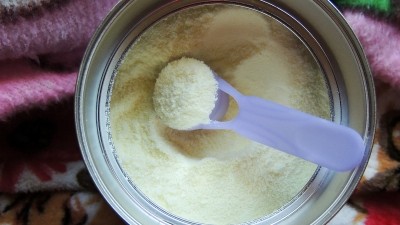NZ's stricter infant formula marketing code working well for industry and consumers: Trade body

The INC recently saw its revised Code of Practice for the Marketing of Infant Formula in New Zealand officially launched at the end of April by health minister David Clark and food safety minister Damien O'Connor.
Extension history
Though the official launch took place only recently, the code has been in practice since December last year, after the INC first applied to the New Zealand Commerce Commission in September to extend the existing restriction on infant formula advertising to include follow-on formula.
This meant that brands and manufacturers would be not permitted to market or advertise formula for children up to a year old, adding to the existing ban on marketing formula for children up to six months old.
At the time, CEO Jan Carey told NutraIngredients-Asia that industry was in fact embracing the decision to extend the restriction, as it was "the right thing to do", adding that the INC's members fully supported this course of action.
Two months later, the Commerce Commission formally approved the INC's request, whereupon the extension of the code would last for a period of five years.
Prioritising public health
This regulatory change was meant to steer parents in the direction of qualified healthcare professionals for advice on infant formula purchases, so they could make a more informed decision, or perhaps stick to breastfeeding if possible.
In a media release, Carey said the INC had applied for the extension because the improved health outcomes that would result from it would 'outweigh the detriments' caused by the dulling of competition between formula manufacturers.
"We recognised the importance of aligning the marketing practices of infant formula that is the sole source of nutrition for infants up to six months old with breast milk substitutes for infants up to the age of 12 months.
"The Commission agreed, and their decision underlined exactly what the industry is trying to do — put the health of babies and mothers first.
"The industry has acted, in my view, with great responsibility and integrity by revising the code."
She added that numerous public health organisations supported the INC's stance, which was taken in accordance with recent guidance from the World Health Assembly, and consistent with the New Zealand Ministry of Health's nutrition guidelines for infants.
Health minister Clark said the code "sits with the government's well-being vision" and was a positive step for the well-being of children, while food safety minister O'Connor called it a "great initiative" and acknowledged industry's voluntary work in revising the code.
In addition, Carey suggested a possible future amendment that would allow nutrition statements to be made on infant formula product labels, which she believes will better aid parents and caregivers in making decisions on which product would be best for their children.
"For now," she said, "We can confidently apply the new Infant Nutrition Council Code of Practice in New Zealand."
Proceeding as planned
Speaking to NutraIngredients-Asia, Carey said: "The extension of the code has been in practice since it was formally approved in December last year, although the official launch was on April 30.
"It took so long because it was difficult to get a hold of the ministers to announce the launch. The upside is that they saw this code extension as good news for the New Zealand industry and wanted to be a part of it."
She added that everything was working was it was meant to be, with no alarms or red flags having been raised in New Zealand's infant formula industry — either from consumers, watchdogs, or manufacturers themselves — since the code was first implemented.
"There are a number of advocacy groups that watch the market quite closely, and I haven't heard of any changes in consumers' buying patterns, or any complaints about industry, which is a good sign — industry is doing what it's supposed to and adhering to the code."
With industry actively working to provide information regarding their infant nutrition products to healthcare professionals and bodies, such as paediatricians, hospitals and clinics, parents can now more easily obtain details on the health benefits of such products from their own doctors, as opposed to advertisements designed to help companies turn a profit.
The INC is hopeful that with these marketing restrictions in place, the source of information regarding follow-on formula — and indeed, infant nutrition in general — will boost parents' confidence in their buying decisions.
Carey said, "I'm very proud of the way industry has taken up the challenge not to market infant formula; it's clear they recognise this is the right thing to do.
"It's also clear why the Australian and New Zealand infant formula markets have set some pretty high standards for the industry."
She also emphasised the importance of continual research as a way to support public health for infants and young children.
"Research is very important, because companies want to make sure they are able to provide formula that is as close to breast milk as possible, and they need to partner with universities and research institutes that can support them in this regard.
"This encourages innovation, and we want to do that, even if it takes a long time to enter the market because regulation tends to need quite a while to catch up with innovation."















